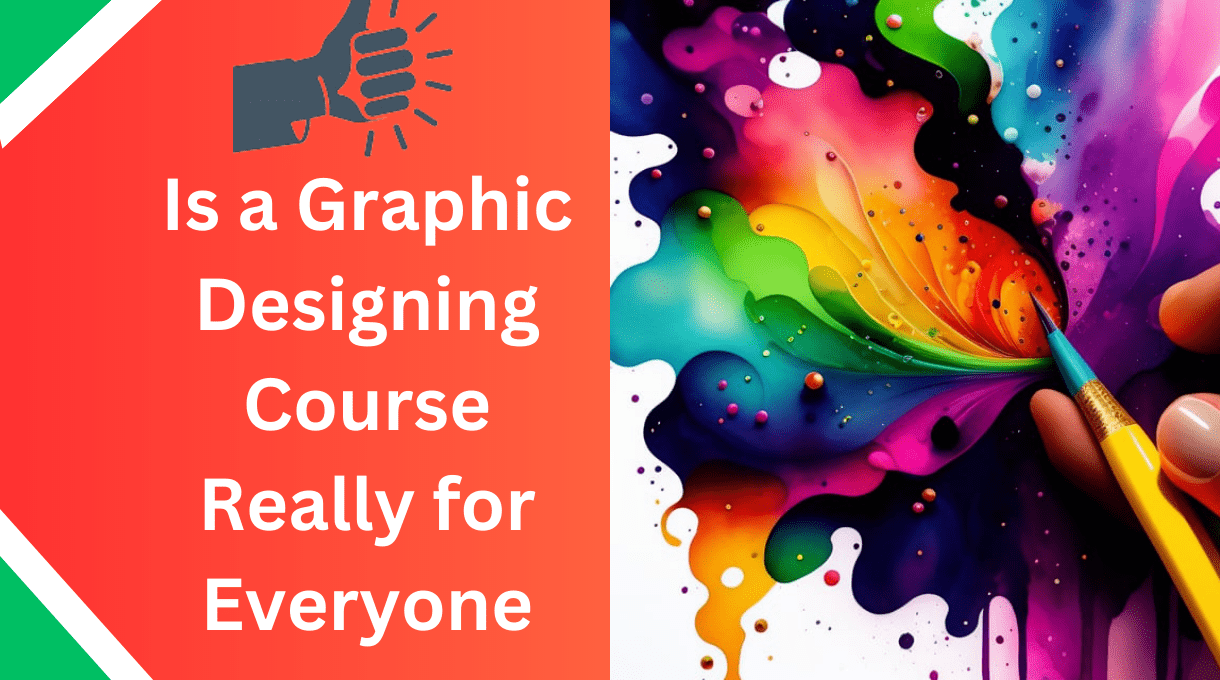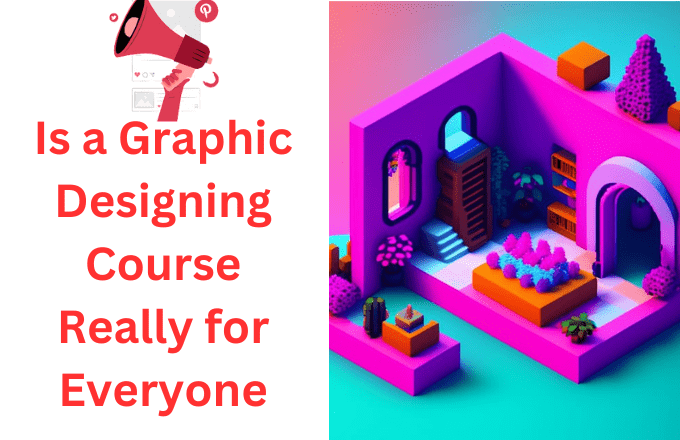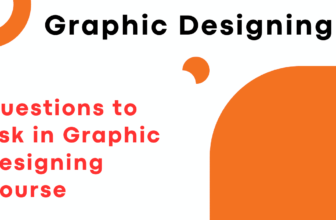
In an era of visual narratives, graphic design has morphed from a niche skill into a widely sought-after expertise. Is a Graphic Designing Course Really for Everyone? From advertising to social media, the imprint of graphic design is ubiquitous. A graphic design course prepares students for careers in the visual arts. This includes logo creation to full-fledged digital and print media ad campaigns. Is a Graphic Designing Course Really for Everyone
Table of Contents
Purpose: Examine Who Can Benefit from Taking a Graphic Design Course and Who Might Not
The growing allure of this field raises a critical question: Is a graphic design course for everyone? This article dissects who might benefit and who might want to reconsider before embarking on this creative journey.

Section 1: Why Graphic Design Courses Are Popular
High Demand for Graphic Designers
Companies constantly search for skilled designers to bring their branding visions to life. This career avenue offers creative satisfaction and lucrative opportunities, making it highly attractive.
Versatility of Graphic Design Skills
From web design to product packaging, graphic design applications are manifold. This skill set is highly transferable, making it a useful asset in diverse industries.
DIY Culture: Using Graphic Design for Personal Projects
Is a Graphic Designing Course Really for Everyone? For novices who lack a background in design, fear not. What’s more important is a genuine willingness to learn.
Section 2: Skill Level and Background
Beginner Level
For novices who lack a background in design, fear not. What’s more important is a genuine willingness to learn.
Intermediate Level
Those with some design background may seek these courses to sharpen specific skills—be it 3D modeling, animation, or UI design.
Advanced Level: Is a Graphic Designing Course Really for Everyone?
Seasoned professionals may opt for advanced courses to upgrade or diversify their skills, staying relevant in a constantly evolving industry.
Section 3: Personal Goals and Objectives
Hobbyists
Engaging in activities like crafting, blogging, or social media? A graphic design course can polish your projects, though it’s not necessarily necessary.
Career Changers
Switching fields? A formal education in graphic design could serve as a cornerstone for a smooth transition.
Existing Design Professionals
For those already in the industry, specialized courses can offer the opportunity to focus on areas like data visualization or interactive design.
Section 4: Learning Modalities
Online Courses
Pros and Cons: Flexible schedule but lacks hands-on interaction.
Best Suited for: Self-starters and those with time constraints.
Traditional Classroom Settings
Pros and Cons: Structured curriculum but less flexibility.
Best Suited for: Individuals who thrive in interactive learning environments.
Workshops and Bootcamps
Pros and Cons: Intensive training can be costly.
Best Suited for: Those looking for rapid skill acquisition.
Section 5: Time and Financial Investment
Average Duration of Courses
Most courses last anywhere from a few weeks to several months.
Cost Considerations
Prices can range from a few hundred to several thousand dollars, so budget accordingly.
Section 6: Alternatives to Formal Courses
Self-Taught Methods
Books, online tutorials, and practice projects can also get you started.
YouTube and Free Resources
An abundance of free material exists for those willing to dig deep.
Short-Term Workshops
Weekend or week-long programs offer condensed learning experiences.
Section 7: Who Should Possibly Avoid Graphic Design Courses?
Lack of Interest
If you’re not genuinely interested, time and financial investment may not be worthwhile.
Unwillingness to Invest Time and Money
Graphic design requires both time and financial commitment. Shortcuts seldom yield quality results.
Those Looking for Quick Financial Gains
While graphic design can be profitable, immediate financial gains are only possible with substantial skill and experience.
Conclusion
Is a Graphic Designing Course Really for Everyone? Graphic design courses offer myriad opportunities for different skill levels and objectives. Nevertheless, many solutions fit all. Assess your needs, goals, and limitations before taking the plunge into this vibrant world of visual storytelling.







